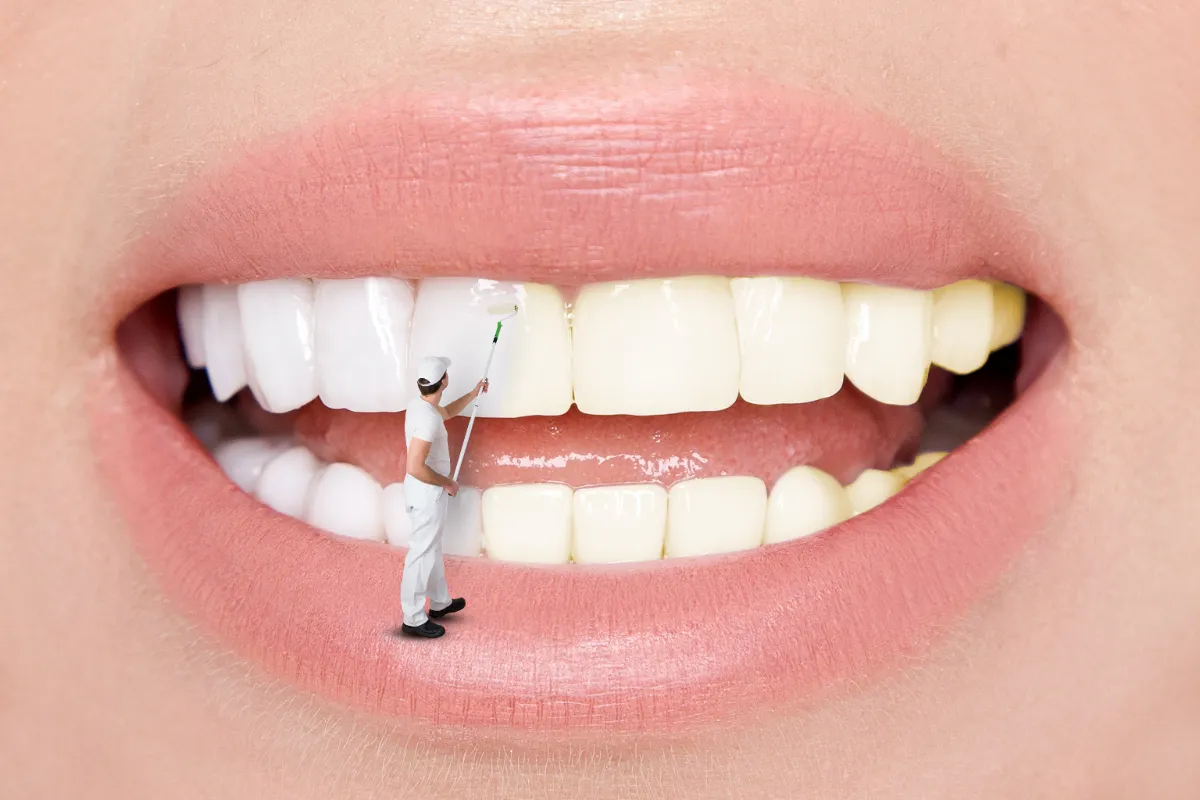
The “intrinsic staining” of teeth, which is brought on by conditions like physical damage or the use of tetracycline antibiotics, cannot be removed by natural substances either. However, if you have “extrinsic staining,” or surface discoloration brought on by use of coffee, tea, red wine, over-the-counter mouthwash, or cigarettes, there may be ways to preserve or enhance your smile in between routine trips to the dentist for expert cleaning and polishing.
However, if you’re thinking about utilizing a natural teeth-whitening treatment, you should be aware that although there are many promises made, there isn’t any recorded scientific evidence to support either their safety or efficacy. And to make matters worse, some of them could actually have the reverse of the desired results: they might gradually fade the color of your teeth and even increase sensitivity, which can be quite uncomfortable.
In order to separate reality from fiction and maybe save you pain and tooth damage along the road, let’s examine the claims.
Apple Cider Vinegar
Apple cider vinegar is often promoted as a kind of panacea by those in the natural health community. Since it is a fermented food, many of its claimed health advantages are attributable to its probiotic qualities. However, it is a trait that may benefit your stomach rather than your teeth.
In actuality, apple cider vinegar is quite acidic as seen by its acrid flavor and strong aroma. And acidic substances destroy tooth enamel and cause tooth decay, whether they are formed by the breakdown of carbohydrates in the mouth or by acids you ingest.
For the brief period they are in your mouth while you eat, contact with food acids like vinegar is okay, but using them to brush or rinse isn’t a smart idea since continuous contact erodes enamel.
Try it or skip it? Skip swishing around apple cider vinegar.
Fruits and Vegetables
Although it is untrue that crunchy food will remove plaque from your teeth, certain fruits, particularly lemons and strawberries, can contain natural acids that have a negative impact on teeth. The fruit acids that stay on your teeth, such with apple cider vinegar, erode the enamel, discolor the teeth, and promote rotting.
On the other hand, a clinical trial found that papayas and pineapples include enzymes that may help whiten teeth by preventing discoloration. These enzymes (papain and bromelain), when mixed in toothpaste formulations, loosen plaque that causes teeth to look stained. However, there is no proof that eating the fruit or using a paste prepared from the pulp to clean your teeth whitens your teeth.
Meanwhile, when they’re a part of a balanced diet, whole fruits and veggies may help you keep your teeth white and healthy. According to research, eating an apple decreases the quantity of germs in the mouth that promote tooth decay. This is crucial for maintaining the health of your teeth, particularly if you can’t brush straight away.
Try it or skip it? You may want to try using toothpaste that includes the fruit enzymes bromelain and papain to help whiten your teeth. Skip the homemade fruit acid pastes and rinses, however.
Charcoal
With promises like toxin clearance and virus eradication, charcoal is enjoying a moment as a health and beauty hero. The natural way, meanwhile, is the one most likely to damage your teeth. This is due to the fact that handmade activated charcoal products may be quite abrasive: Regularly using charcoal to brush your teeth may completely remove the enamel, exposing the dentin layer, which is darker.
The most harmful items, in my opinion, are super-abrasive charcoal toothpastes, claims Messina. While some charcoal toothpastes have been examined and given the ADA’s seal of approval for safety, many have not.
Try it or skip it? Don’t make your own charcoal preparations. If you wish to try a product containing charcoal as an ingredient, look for an ADA-approved charcoal toothpaste.
Oil Pulling
Another popular natural product is coconut oil, which has a special fatty acid composition that is said to increase metabolism (from the inside out) and has moisturizing characteristics (on the outside).
The process of “oil pulling,” however, has a long history in ayurvedic treatment. This age-old Indian method is aggressively swishing oil, often coconut oil, around your mouth and between your teeth for 15 to 20 minutes, at least once and sometimes three times every day. After that, clean your teeth as normal. By preventing the development of microorganisms that encourage tooth decay and lowering inflammation in the gum tissues, it is thought to support dental health.
Although there may appear to be some support for these claims, there is very little proof that it really whitens teeth, despite the possibility raised by a single research. Messina asserts that oil pulling has no fundamental risks unless patients forego receiving additional medical attention. The sole caution associated with oil pulling is to avoid spitting the oil down the drain since you risk clogging your pipes. Instead, use the garbage can.
Try it or skip it? Consider giving oil pulling a go. Just remember not to ingest, inhale, or spit the oil into the sink.
Baking Soda
Baking soda (sodium bicarbonate), which is far less abrasive than charcoal (or kaolin clay, another common natural abrasive), has a long history of being a dental hero. Because it is both an alkaline substance and a very gentle scrub, it may both lighten teeth stains and foster a mouth environment that is less conducive to hazardous germs.
You may use a traditional baking soda toothpaste or manufacture your own paste by combining the powder with water, but if you choose the latter option, you will lose the benefit of additional fluoride for cavity prevention. (Avoid adding charcoal, crushed strawberries, or any other untested natural additives that you may see suggested elsewhere. The strawberries won’t have any impact and other abrasives are too harsh since the baking soda will neutralize the fruit acids. Additionally, Messina advises using a fluoride rinse after brushing your teeth if you decide to DIY your teeth whitening in order to further fortify your teeth against decay.
Try it or skip it? Try it. Both homemade and store-bought baking soda toothpastes are risk-free in this instance, however the commercial pastes benefit from fluoride addition.








